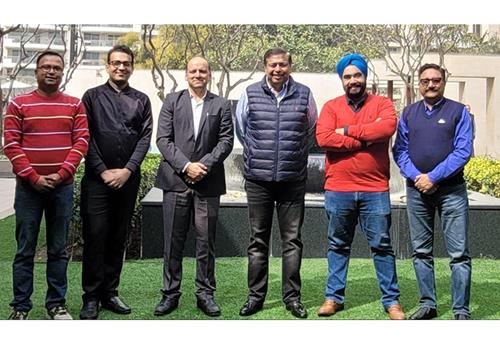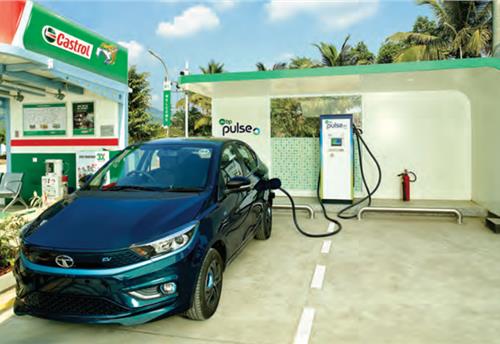Crash and learn: iCAT’s passive safety lab shows just how
The International Centre for Automotive Technology in Manesar is readying itself to be a complete end-to-end vehicle testing solutions provider.
WHAM! That’s exactly how one could simply describe the violent boom which emanates as a car crashes into a rigid barrier at 56kph, in a controlled environment. We were among the few invitees who witnessed the first official crash test in the newly inaugurated ‘Passive Safety Lab’ at the International Centre for Automotive Technology (iCAT), in Manesar recently.
The nodal test agency catering to the northern belt of automotive component suppliers as well as OEMs from the four-wheeler, two-wheeler, CV and even EV segments, and coming under the aegis of the National Automotive Testing and R&D Infrastructure Project (NATRIP), has opened four brand-new test facilities at its second site in Manesar. With this, it has upped its act in terms of its capabilities as well as preparedness for the enhanced safety regulations in India, and the future improvements planned over due course of time.
Built with a total investment of Rs 530 crore, the new NVH, EMC, PSL and Tyre Test labs were inaugurated by Anant G Geete, Union Minister for Heavy Industries and Public Enterprises, on May 29. While the new test facilities boast state-of-the-art equipment and world-class infrastructure, the site, spread over an area of 46.6 acres, will also house a fully integrated vehicle test track by October, which will upgrade iCAT’s ability to inch closer to being a holistic Centre of Excellence (CoE), offering complete end-to-end vehicle testing solutions.
The 2.2-metre-thick walls of the NVH lab are made up of sound-absorbing materials and help study unwanted noise and vibration levels including engine, road, wind, electronic seats and brakes.
While iCAT has seen tremendous growth over the last decade, boasting a CAGR of over 41.4 percent, it generated Rs 173.5 crore in revenues in FY2018 and increased its customer base, which today stands well over 1,000 clients which approach it for Conformity of Production (COP) approvals after testing, as well as for developmental aid through the course of the engineering phase.
The government of India has recognised iCAT as one of the accredited 'Type Approval and Homologation' agencies in India under Central Motor Vehicle Rules (CMVR) 126. It has also been recognised as a Scientific and Industrial Research Organization (SIRO) from the Department of Scientific and Industrial Research (DSIR), since February 2010, by Bureau of Indian Standards (BIS) for tyre testing, safety glasses; and by Central Pollution Control Board (CPCB) for emission and noise testing of generator sets.
Noise, vibration and harshness lab
The NVH lab, constructed with a total investment of Rs 153 crore, is a state-of-the-art facility comprising different chambers for component, heavy-duty (HD) vehicles, and passenger vehicle (PV) testing. The facility has three coupled acoustic rooms with the combination of reverberation and semi-anechoic chambers built using metal, glass wool, felt tissue and concrete.
The HD and PV chambers both get a 4x4 rolling road (dynamometer) with the ability to turn all four wheels at one go. It is, however, the PV chamber where the dynamometer offers a GVW capacity of up to 3,500kg along with the option to individually drive the two motors, as well as to extend the wheelbase, thus, making it a modular bed to test two-wheelers, three-wheelers and four-wheeler passenger vehicles, all in the same lab. The indoor lab can simulate a situation where a vehicle is being driven on an open road, which is usually conducted as part of certification exercise on track in the vehicle’s ‘Pass-By’ measurement test.
New EMC lab at iCAT will play a vital role, given the dramatically rising amount of electronic components making their way into modern-day vehicles.
With the thickness of the entire chamber wall being a massive 2.2 metres, and the material having a cut-off frequency, below which it would absorb all the ambient noise, what the lab is left with is only the component noise which gets picked up by microphones as the car is tested on the rolling road. Moreover, with a large number of microphones placed inside the cabin as well, even the feeblest of the sounds could be traced, once the simulated road environment is created.
Being indoors and having highly sensitive systems, the equipment offers more repeatability and thus, an overall better result for the development process, as compared to the one done on track.
The facility has been conceptualised and designed in such a way that the rolling road would act as the test track, and once the particular components or even the materials are pointed out to be making unreasonable noises at frequencies that would irk human ears inside the car, they would be further tested in the component test section or the material test section, in order to judge the noise produced in isolation, and further fine-tune the designs or the materials of these parts.
Electromagnetic compatibility lab
The new EMC lab inside iCAT will play a vital role, given the dramatically rising amount of electronic components making their way into modern-day vehicles with every passing day. Electromagnetic compatibility is the ability of a vehicle or electrical (over 12V) /electronic (within 12V) component to function satisfactorily in its electromagnetic environment and not create frequency resonance with other electrical /electronic systems functioning in its vicinity.
The NABL (ISO 17025) accredited lab has a vehicle semi-anechoic chamber (VSAC), which boasts an 11-metre diameter turntable, as well as a 4x4 chassis dynamometer. The large diameter of the base helps accommodate all types of vehicles ranging from two-wheelers to heavy commercial vehicles for electromagnetic emissions and immunity.
The lab also features a component semi-anechoic chamber (CSAC) for testing of electromagnetic emissions and immunity for electrical/electronic components of a vehicle. It is also equipped with a general instrumentation room for component-level tests like conducted immunity, conducted transient emissions and electrostatic discharge.
Passive safety lab
Built with an overall investment of Rs 68 crore, the NABL-accredited lab is a state-of-the-art facility, capable of performing crash tests, including full frontal, frontal-offset (40 percent), side impact, rear impact, pedestrian protection, as well as sled tests, as per various international and NCAP regulations including the Bharat NCAP, which is yet to be implemented. The lab will support Indian and global automotive companies for certification and R&D in the field of passive safety.
The inaugural day saw a top-spec Maruti Suzuki Baleno, which comes with dual airbags as standard, being hurled towards a rigid crash barrier, at a speed of 56kph, to undergo the frontal-offset test. The hot-selling locally produced premium hatchback, which is also exported to Suzuki’s home turf in Japan, as well as to Europe, from India, saw the crumple zones around the front bumper absorb most of the impact and divert it towards the sides. The cabin shell too remained entirely intact with both airbags getting sequentially deployed, the driver airbag following the co-passenger one.
The entire crash process is recorded with high-speed cameras, deployed all around the test zone, with the slew of sensors mounted on the car, as well as on the human dummies placed inside the cabin, giving detailed data for further monitoring and analysis.
The lab also gets a dummy calibration facility, specialised lighting, on-board data acquisition system, soak room, pedestrian protection test facility, deceleration sled test facility and airbag test facility among others.
Tyre test lab
The TTL, which is also NABL-accredited, has been further approved by the Bureau of Indian Standards. It offers services related to Type Approval and Conformity of Production of tyres as per the AIS-037 (CMVR). iCAT has transformed this lab into a centre of excellence by developing new capabilities including the installation of Dual Station Endurance Test Rig and Tyre Rolling Resistance Test Rig as per ECE R117 and AIS-142.
The tyre test lab aims to cater to a host of local and foreign OEs entering the voluminous and dynamic Indian tyre market, with supplies, both at the OE level as well as aftermarket.
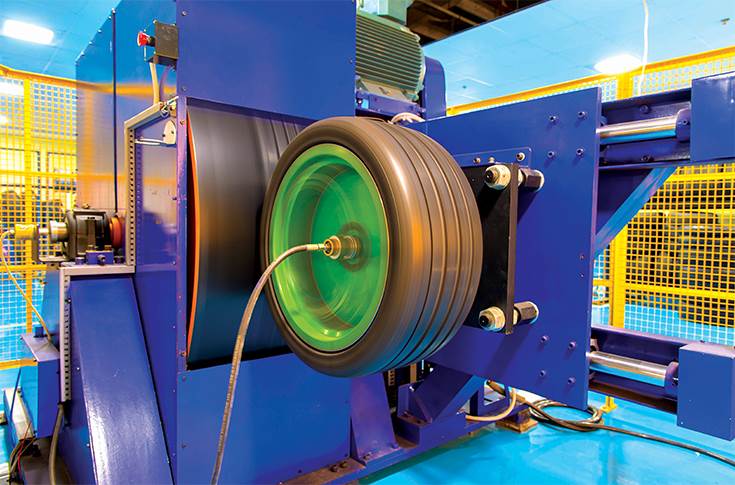
Tyre Test Lab at iCAT gets a dual station endurance test as well as a tyre rolling resistance test rig as per the ECE and AIS standards.
Speaking at the inauguration ceremony, Anant G Geete commented, “What is commendable is that with NATRiP, we have been able to provide a world-class testing infrastructure within India for use by the automotive industry. We are ready to tackle all the challenges of the future and the Ministry is always ready to support the industry.”
Coming as it does after India’s first crash test facility under NATRiP at ARAI, Pune, the iCAT facility at Manesar serves to further expand the country’s capability to test vehicles and components which global OEMs and suppliers can readily use, reducing cost as well as the resultant product's time to market. The overall improving vehicle testing infrastructure also indicates evolution of the overall Indian automotive industry.
(This article was first published in the 15 June 2018 issue of Autocar Professional)
RELATED ARTICLES
Branded content: HL Klemove inaugurates first Local ADAS Radar Manufacturing Unit in India, marks a significant achievement in “Make in India” initiative
The inauguration ceremony was held in the presence of Vinod Sahay, President and CPO of Mahindra & Mahindra Ltd. and Dr....
BluWheelz to 'Green Up' logistics sector
With their EVs-as-a-service solution, the startup is playing it smart with costs and looking to electrify the entire seg...
BRANDED CONTENT: Spearheading the EV revolution in India
Jio-bp is a joint venture between Reliance Industries and BP PLC where both entities have married international expertis...





 06 Sep 2018
06 Sep 2018
 13089 Views
13089 Views



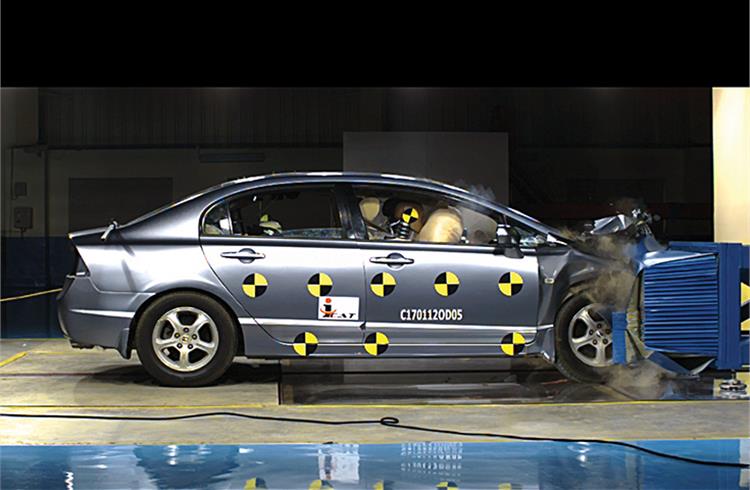
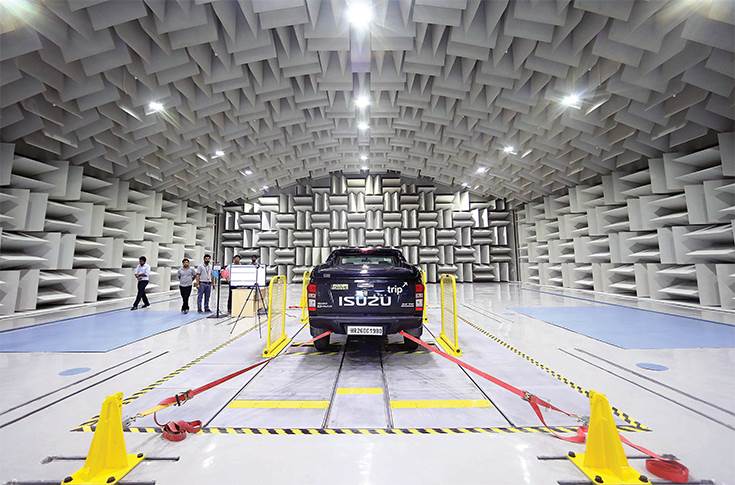
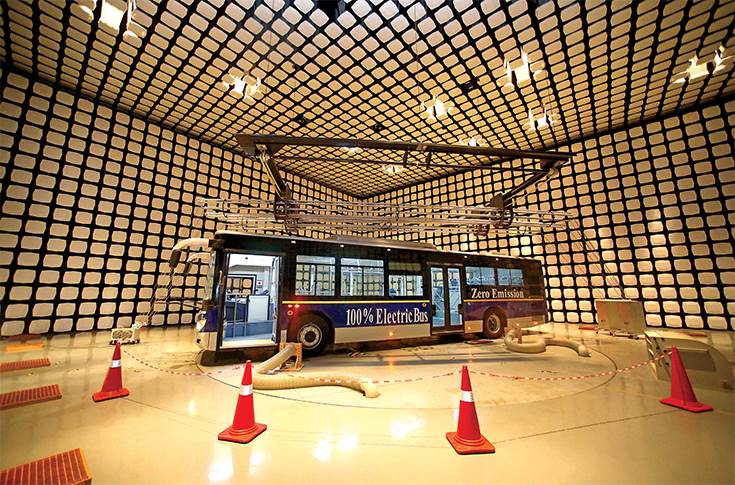
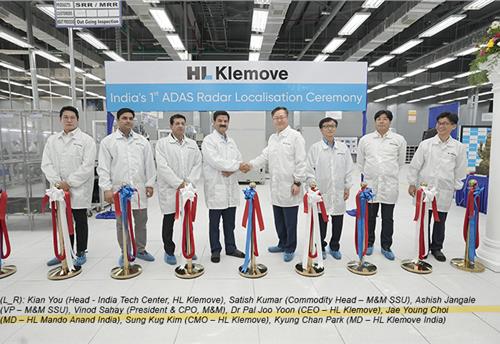
 Autocar Pro News Desk
Autocar Pro News Desk

